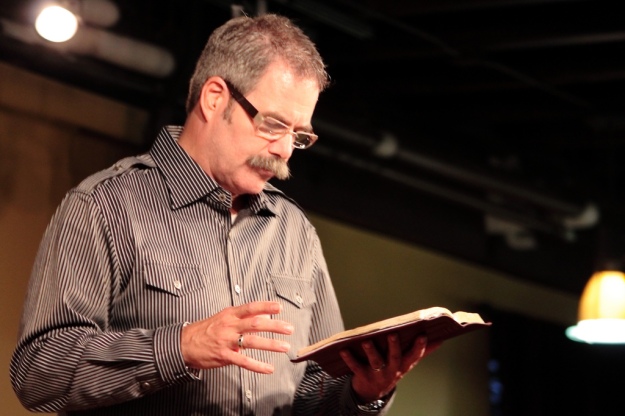 The Bible records two epic songs of Moses, the first of which occurs following Israel’s escape from Egypt and God’s Red Sea miracle.
The Bible records two epic songs of Moses, the first of which occurs following Israel’s escape from Egypt and God’s Red Sea miracle.
Exodus 15: Then Moses and the people of Israel sang this song to the Lord, saying,
“I will sing to the Lord, for he has triumphed gloriously;
the horse and his riderhe has thrown into the sea…”
The song continues through verse 18. Then Moses’ sister Miriam decides to continue praising, so she leads the women in dancing and tambourines, while they reprise the song (Exodus 15:20-21).
Read the entire passage and you’ll see many poetic devices that we use today:
Metaphor:
“The Lord is a man of war …” v. 3
Simile:
“… they went down into the depths like a stone” (v. 5)
Anaphora (repetition of the same words at the beginning of successive clauses):
“Your right hand, O Lord, glorious in power,
your right hand, O Lord, shatters the enemy. (v. 6)
And the content of the song itself, like those in the book of Psalms, recounts God’s salvific actions, admonishes God’s people to praise Him, and announces confidence that God will continue guiding, protecting and blessing His people. This is the kind of content that is useful for encouraging and admonishing God’s people as we dwell richly in the word of Christ, with thankfulness in our hearts (Colossians 3:16).
Like the examples we’ve talked about in the psalms of David and Mary’s Magnificat in Luke, the song of Moses shows attributes and historical actions of the one true God. It is not an abstract song that might be about our God or might be about a vague higher power or earthly lover.
The second Song of Moses is even more expansive in scope, enfolding over the course of Deuteronomy 31:30-32:1-44. In Leland and Philip Graham Ryken’s introduction to the 2nd Song of Moses in the ESV Literary Study Bible, they write, “The order of sentiments follows the U-shaped pattern of literary comedy, with a descent into tragedy and a renascent to a happy ending.”
Over the course of this ballad, Moses praises God for his actions and attributes (32:4-14), confesses Israel’s sin (32:15-18), announces God’s judgment upon them and, more so, the pagan nations (32:19-33), reveals that God will deliver Israel and punish the wicked (32:34-42), and ends with an epic call to worship in 32:43:
“Rejoice with him, O heavens;
bow down to him, all gods,
for he avenges the blood of his children
and takes vengeance on his adversaries.
He repays those who hate him
And cleanses his people’s land.”
Besides being an example of how to worship God through song, this passage is a study in the use of poetic and rhetorical devices.
Songwriter’s Exercise:
Get our free Glossary of Poetic And Rhetorical Devices. Then read these two songs of Moses, notating all the uses of these writing devices that you can find. You can also do this for psalms, prophecies and the parables of Jesus. Gradually, you will begin to notice these devices more easily, and add them to your own songwriting toolbox.
And more importantly, follow scripture’s pattern of writing praise songs specifically to the God of the Bible. This doesn’t mean each song must be as expansive as the songs of Moses. Some Bible songs are the equivalent of a contemporary praise chorus, like Psalm 117:
Praise the Lord, all nations!
Extol him, all peoples!
For great is his steadfast love toward us,
and the faithfulness of the Lord endures forever.
Praise the Lord!
But the scope of a church’s song catalog should aim to display, as best we humans can, the full wonders of Jesus and His love, the richness of God’s plan, and the range of the Spirit’s wisdom and power.








